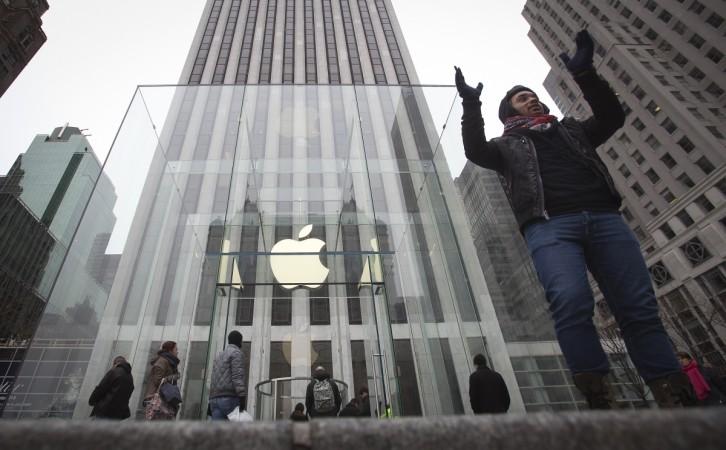
Apple's (AAPL.O) stock hit a 2016 high on Wednesday, with its market value peaking above $600 billion for the first time since April as Wall Street bet the technology company's newest iPhone would help shore up falling sales.
Fueled by U.S. wireless carriers' reports of strong early orders for the iPhone 7 as well as arch-rival Samsung Electronics' (005930.KS) widely-publicized recall of potentially exploding Galaxy Note 7 smartphones, shares of Apple rose as much as 4.7 percent to $113.03 for a gain of 10 percent in the past three days.
Its market capitalization reached nearly $607 billion, compared to $535 billion for Alphabet (GOOGL.O) and $440 billion for Microsoft (MSFT.O).
After sinking to a two-year low in July that had portfolio managers describing Apple as a value stock and no longer a growth play, shares of the world's most valuable listed company have since rebounded 25 percent.
On Tuesday, Sprint (S.N) said pre-orders for the iPhone 7 were up nearly four times compared to last year's iPhone. T-Mobile (TMUS.O) said pre-orders rose nearly four times compared with its next most popular iPhone.
Potentially adding to demand for Apple's products, China's quality watchdog said on Wednesday that Samsung would recall 1,858 of its Galaxy Note 7 phones due to its fire-prone batteries, expanding the list of countries where the devices have been recalled.
"With the carriers telling Samsung owners that Samsung wants you to take your phone back into the store, well, people are going to look elsewhere," said Longbow Research analyst Shawn Harrison.
Specific details about sales of the new iPhone are scarce after Apple announced last week it would not release weekend sales data, saying the number was more a reflection of supply than demand.
Also up on Wednesday were companies supplying chips and other technology for iPhones: Cirrus Logic (CRUS.O) rallied 4.3 percent, Skyworks Solutions (SWKS.O) gained 3.8 percent and Jabil Circuit (JBL.N) added 2.8 percent.
With U.S. consumers less eager than in the past to replace their devices, global smartphone shipments are likely to grow less than 2 percent in 2016, compared to 10 percent last year, according to market research firm IDC.
Revenue for Apple's fiscal year ending this month is likely to fall 8 percent and then grow 4 percent next year, according to the average estimate of analysts tracked by Thomson Reuters I/B/E/S.

















